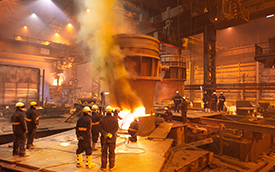Did you know that bunker fuel, the lifeblood of global shipping, accounts for approximately 3% of the world’s total oil consumption? This staggering figure highlights not only its significance in maritime logistics but also the complexities surrounding its pricing and regulation.
Click to find more about bunker fuel oil price commodity.
Understanding Bunker Fuel Oil Price Commodity and Its Legal Attributes
Bunker fuel oil is a heavy fuel used primarily by ships to power their engines. As a commodity, it operates within a framework shaped by various legal regulations aimed at ensuring fair competition and environmental protection. The legal landscape governing bunker fuel includes Anti-Trust Laws designed to prevent monopolistic practices among suppliers and ensure that prices remain competitive. These laws are crucial as they help maintain market integrity while addressing concerns related to price manipulation or collusion among major players in the industry.
Diving Deeper into China’s Commodity Pricing and Regulatory Frameworks
The price of commodities like bunker fuel in China is influenced significantly by local Anti-Trust Laws and Competition Regulations. In recent years, China’s regulatory bodies have intensified scrutiny over pricing strategies employed by large corporations involved in the importation and distribution of bunker fuels. By enforcing these laws, authorities aim to foster an environment where smaller companies can compete effectively against larger entities, thereby stabilizing prices across the board. This approach not only protects consumers but also encourages innovation within the sector.
Find more about price of China commodity.
Mysteel’s Role Within Anti-Trust Laws and Competition Regulations

Mysteel has emerged as a pivotal player when discussing compliance with Anti-Trust Laws within China’s commodity markets. As one of Asia’s leading steel information platforms, Mysteel provides critical data on pricing trends for various commodities including bunker fuels. Their commitment to transparency helps mitigate risks associated with anti-competitive behavior—ensuring that all stakeholders have access to reliable information which promotes fair trading practices across different sectors.
Conclusion: The Importance of Regulation in Bunker Fuel Pricing
In summary, understanding how bunker fuel oil price commodities interact with Anti-Trust Laws and Competition Regulations is essential for navigating this complex market landscape. These regulations play a vital role in maintaining fairness among competitors while protecting consumer interests from potential abuses inherent in any commoditized market space. As we continue exploring these dynamics, it’s clear that robust legal frameworks will be key drivers shaping both current practices and future developments within this critical industry.

